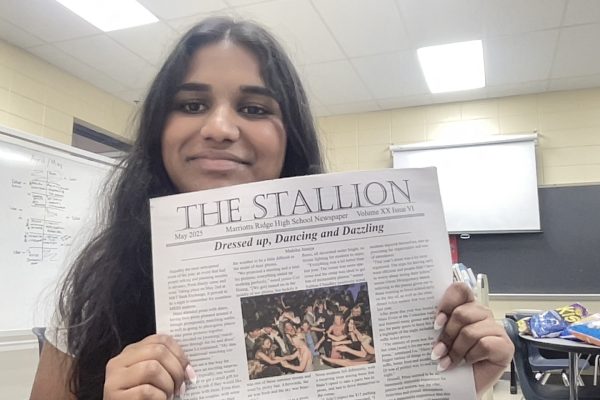Celebrating the Great Women of History
For almost twenty-five years, March has been commemorated as Women’s History Month. This month was designated to celebrate the contributions of women throughout history. Amazing women have shaped American and world history in many ways. As March continues, it is important that people honor the great women of the past and present.
Women’s History Month celebrates the accomplishments of women that have been overlooked throughout history. Understanding the impact of women in our society should be important to everyone.
“Women’s History Month pushes me to continue fighting for women’s rights, as I want my future daughter(s) to live in a world where they are treated equally to men,” sophomore Jadyn Kelly said. “Only one hundred years ago were women given the right to vote, and since then we have made much progress.”
She’s right—in 1920, the 19th Amendment was passed, giving women the right to vote. This simple value, voting, was only brought about after the many protests and demonstrations of the Women’s Suffrage Movement.
Two feminists who were vocal in gaining support for the American Women’s Suffrage Movement include Susan B. Anthony and Elizabeth Cady Stanton. Both women traveled the United States and created the National Woman Suffrage Association, garnering more support for women’s rights. Susan B. Anthony set an incredible example by doing what, at the time, was unthinkable: attempting to vote in an election as a woman. Although she was arrested, her stand inspired generations of women to come. Elizabeth Cady Stanton, in the Seneca Falls Women’s Suffrage Convention 1848, also advocated for women to have the right to vote.
“Without her, I don’t think we’d be where we are today,” Kelly said.
The Women’s Suffrage Movement made bounds for women in the country, but people should also look at the female figures of other social movements. Women involved in the Civil Rights movement were crucial in achieving greater equality for African Americans in the United States. Most people already know about Rosa Parks’s stand against racial discrimination, but many aren’t aware of Claudette Colvin’s story. At age fifteen, Colvin refused to give up her bus seat to a white person, even before Rosa Parks did so.
“She was only 15 and still decided to go against the racist laws affecting black Americans,” freshman Makayla Johnson said. “I think it’s amazing how she stood her ground and how brave she was.”
Another woman vital in making gains for women includes Shirley Chisholm, the first black woman elected to Congress and to run for a major political party in the United States. In 1972, Chisholm entered the presidential race, inspiring many women and/or black Americans to pursue their dreams.
“Although there weren’t many opportunities for women and African Americans during her time period, she fought against these restricting social norms and ran for president,” freshman Elain Park said. It’s safe to assume that most women minority politicians would not be here without the bravery of Shirley Chisholm.
Asian-American Women also had to overcome significant barriers in this country that prove how powerful women are. Anna May Wong went against restrictions that held her back as a minority actress. Wong became the first Chinese American film star in Hollywood, working in a racist environment and making gains for Asian-American women.
“Her work was also greatly inspiring to young Asian Americans who wanted to work in the film industry—what people saw as an impossibility before was now a possibility because of her,” sophomore Annie Wang said.
Although March is a month of celebration for all the accomplishments of women, it is necessary to consider the struggles that women still face today.
“We focus a lot on the Suffrage movement but a focus on modern issues would be really important and advance women’s rights,” sophomore Bella Virden said.
“The wage gap, which prevents women from receiving the same pay as men for the same job, [hinders us],” sophomore Ava Taylor said. Women are generally paid less than their male counterparts. This problem will only continue to hold women back if left unaddressed.
Many stereotypes and misconceptions, including the idea that women are inferior to men, continue to promote sexism in today’s society.
“It’s an extremely sexist stereotype and puts the idea into specifically young girls’ heads that they can’t do the same things as men,” Johnson said. “This stereotype is also projected through systemic sexism and misogyny that are built into our everyday lives like women being paid less than men, catcalling, the objectification of women, and even the media itself.”
Women are often regarded as the weaker moral sex, which is a dangerous idea. “My friends did debate [team], and were told they were ‘too aggressive for girls,’ which led to them losing the round,” Wang said. “If we could break these harmful stereotypes and allow girls to act however they wanted to, I believe it could lead to many successes for women in the future.”
The sexualization of women also presents a threat to women. “We are told what we can and cannot wear, that “boys will be boys”, that we are asking to get sexualized based on what we wear,” Kelly said. “These things tell women that we don’t deserve respect, making us feel small.” These barriers must be overcome to ensure gender equality in society.
However, these ideas continue to fade away as society progresses. “Nowadays, change in that belief is visible,” sophomore Joanna Chang said. “Females knowing and expressing themselves brings me joy; females acknowledging their strength is starting to grow in today’s society.”
Many students claim that more can be done by educators to address gender inequality. “Why do we need a month to make teachers finally teach children about the importance of the changes women have made in history?” freshman Makayla Johnson emphasized. “We should be learning these things all throughout the year, not just one month.”
Freshman Judy Tu agreed. “We can better celebrate and understand the accomplishments of women by researching how they had impacted our society and world as a whole for the greater good, and just overall showing appreciation for them.”
While there is necessary work to be done in advancing the rights of women, reflection on the accomplishments of women throughout history shows how they continually fought to break the barriers that constrained their potential impact on the world.

Hey there! I'm Isabel, and I am a senior. This is my third year in journalism, and I am serving as Managing and Multimedia Editor. I’m involved in Class...







